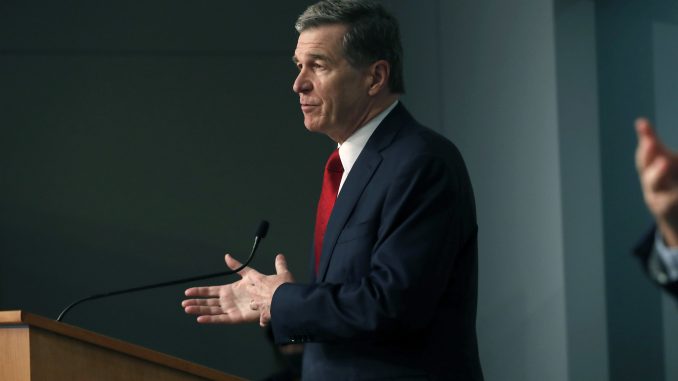
RALEIGH – Gov. Roy Cooper announced on Tuesday a statewide curfew on alcohol sales in restaurants, breweries, wineries, and distilleries to take effect on Friday, July 31 at 11 p.m.
“Slowing the spread of this virus requires targeted strategies that help lower the risk of transmission,” said Gov. Cooper. “This will be particularly important as colleges and universities are scheduled to start, bringing people all over the country to our state. We have seen case numbers increase among younger people, and prevention is critical to slowing the spread of the virus.”
The order does not apply to grocery stores, convenience stores or other entities permitted to sell alcohol for off-premises consumption. Local governments that have implemented orders that end alcohol sales before 11 pm or that apply to other entities remain in effect. The new executive order 153 will remain in place until Aug. 31.
“We want to prevent restaurants from turning into bars after hours,” said Cooper, who went on to say that the “bar scene” is where they have seen increased transmissions in other states.
Both N.C. Treasurer Dale Folwell and the office of Lt. Governor Dan Forest confirm to North State Journal that the governor did not ask for concurrence from the Council of State on this latest executive order.
“We are getting reports of some restaurants that are turning into bars late at night,” Cooper said, adding that social distancing is not being observed.
The curfew on alcohol sales will also impact private events and weddings. When asked about enforcement of the alcohol curfew, Cooper responded that the Division of Alcohol Law Enforcement with the Dept of Public Safety is authorized to handle enforcement. Violation of the order would be a Class 2 misdemeanor.
Cooper said that his executive order applying to utility payments will be allowed to expire. Executive order 124 banned utility companies from charging late fees, interest, or terminating accounts due to non-payment and was extended in executive order 142, which is being allowed to expire on July 29. The governor announced that his office will be unveiling a fund to help people with rent and utility payment issues.
Executive order 142 was a hot topic at the most recent Council of State meeting. A number of utility providers in the state are on the verge of bankruptcy due to non-payment and mounting delinquent accounts. Members wanted more discussion on the matter, but the governor ended the meeting instead.
N.C. Dept. of Health and Human Services Secretary Mandy Cohen rolled out a number of charts, all of which showed the state’s key metrics leveling off or declining. Lab-confirmed cases are leveling as is the “syndromic surveillance trend for COVID-like illness.” Additionally, the trajectory of hospitalizations is increasing, however, the state still has enough hospital capacity.
“Seeing glimmers of potential progress does not mean we can let up — it means it’s time to double down,” said Cohen. “The positive signs in our trends should only strengthen our resolve to keep at it with those 3 Ws – wear a face covering, wait six feet apart, and wash your hands often.”
Cohen said that she wants to see North Carolina’s percentage of positives “hit 5%.” which appears to be a previously unstated target claim. The state’s positive case percentage is down from 10% last week to 8% this week.
This is a developing story and will be updated.


